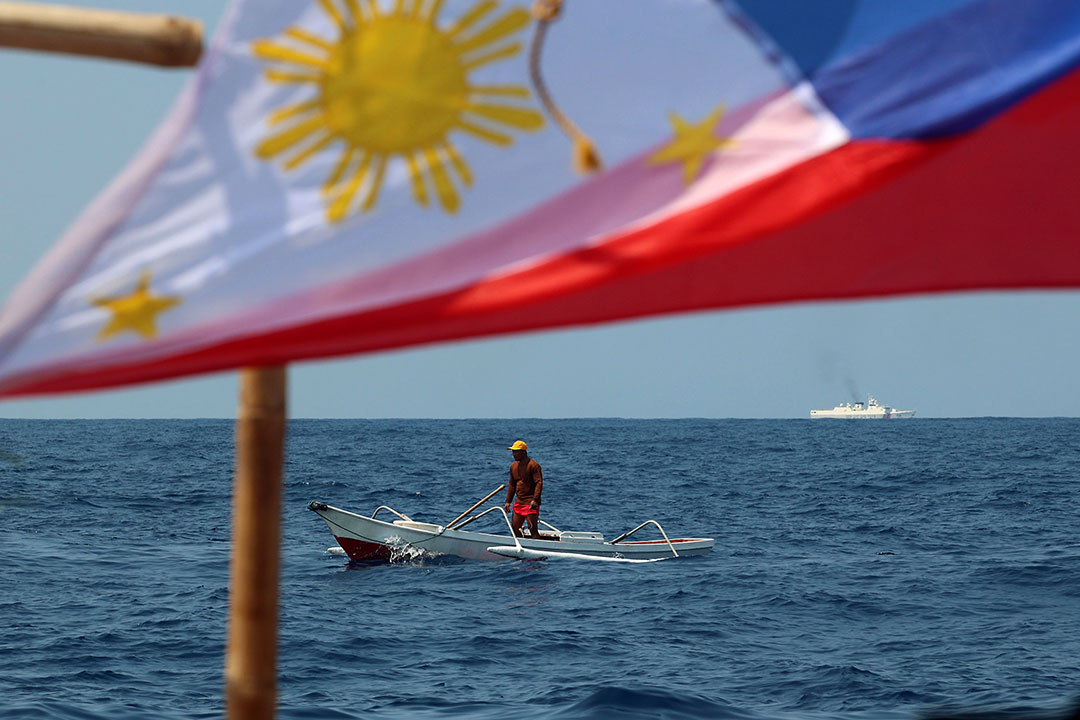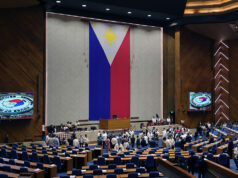Philippines told to buck China detention rule vs ‘trespassers’ in South China Sea

By Kyle Aristophere T. Atienza, Reporter
A CHINESE rule allowing its coast guard to detain foreigners crossing what it considers its borders could be a “hostage policy” meant to weaken Philippine resolve to defend its claims in the South China Sea, geopolitical experts said at the weekend.
There is a “very real possibility” now that its coast guard could detain a Filipino fisherman for one or two months, which could lead to a “serious diplomatic and humanitarian crisis,” said Raymond M. Powell, a fellow at Standford University’s Gordian Knot Center for National Security Innovation.
“Beijing may decide to do such a thing simply to test the Marcos administration’s resolve or deter future assertions of its maritime rights,” he said in an X message. “This would create a form of hostage diplomacy in which Beijing holds a mariner and then demands concessions.”
The Chinese Embassy in Manila did not immediately reply to a Viber message seeking comment.
China’s new policy, which the Philippine Coast Guard said is illegal, allows its coast guard to detain foreigners it suspects of violating its exit-entry rules including in disputed areas of the South China Sea for up to 60 days without a trial.
Foreign vessels may be seized, and foreigners detained if they are accused of illegal entry and exit, of helping others “to illegally enter and exit the country,” and of “endangering national security and interests.”
“The new policy will restrict fishing, scientific research and commercial activities by other nations in contested waters, effectively extending China’s control without resolving underlying disputes,” Randy M. Tuaño, dean of the Ateneo de Manila University School of Government, said in a Facebook Messenger chat.
“The policy certainly undermines international law, including the 2016 Permanent Court of Arbitration ruling favoring the Philippines,” he added.
The United Nations-backed tribunal voided China’s claim to more than 80% of the waterway, including areas that fall within the Philippines’ exclusive economic zone (EEZ).
Tensions between the Philippines and China have worsened in the past year as Beijing continues to block Manila’s resupply missions to Second Thomas Shoal, where Manila grounded a World War II-era ship in 1999 to assert its sovereignty.
The Chinese Coast has on many occasions fired water cannons and used dangerous maneuvers to block the Philippines’ missions within its exclusive economic zone.
The government should call on its international partners including the US, Japan and Australia to oppose the Chinese policy, Senator Ana Theresia N. Hontiveros-Baraquel said in a statement.
“Should Beijing dare push through with this illegitimate regulation, the Philippines’ hand may be forced to sue them again in the Hague tribunal,” she said. “China, better abrogate this shameless policy. China, better stop inciting violence in our waters. China, better leave the West Philippine Sea alone.”
Joshua Bernard B. Espeña, vice-president of Manila-based International Development and Security Cooperation, said China’s detention policy could weaken Philippine efforts to civilianize its EEZ.
“This call for arrests will certainly jeopardize the safety of Filipino citizens lawfully faring in the area,” he said via Messenger chat.
A civilian flotilla of Filipino activists on Thursday failed to sail closer to Scarborough Shoal in the South China Sea, avoiding a clash with dozens of Chinese Coast Guard and militia vessels patrolling the area.
Still, the Atin Ito civic coalition called its mission to the shoal a success after it managed to distribute food packs and about 1,000 liters of fuel to Filipino fishermen about 50 kilometers away from Scarborough.
Mr. Powell urged the government of President Ferdinand R. Marcos, Jr. to raise China’s detention policy with Southeast Asian nations and Philippine allies “and make it clear that such hostage diplomacy must never be practiced or tolerated by civilized nations.”
“He’ll have the perfect opportunity to do so in two weeks when he will be the keynote speaker at the Shangri-La Dialogue in Singapore,” he added.
Mr. Espeña said the Association of Southeast Asian Nations is “unlikely to join the Philippines until the Chinese make certain arrests.” “We cannot expect everyone to be on board.”
Mr. Tuaño said the Philippines should continue to reinforce its position as a rule-of-law advocate and garner support from the international community.
It should also boost ship patrols in coordination with allies to “protect its waters while avoiding direct confrontations.”
“Issuing formal diplomatic protests and engaging in international forums to highlight the risks associated with China’s policy could be undertaken,” he added. — with John Victor D.Ordoñez



